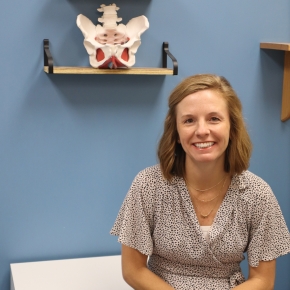Phelps Memorial Therapy Center has two pelvic floor therapists who are able to assess and customize treatment plans for patients with pelvic floor issues.
Pelvic floor therapy is a non-surgical approach to rehabilitation of dysfunctions in the pelvis that contribute to bowel, bladder, sexual health and pain complaints.
Pelvic floor therapy can treat:
- Urinary and Bowel Incontinence
- Pelvic Organ Prolapse
- Diastasis Recti
- Pelvic Pain
- Pain with Intercourse
- Constipation
- Labor & Delivery Preparations
- Postnatal Pelvic Floor Recovery
All patients will be evaluated with an external and possibly an internal pelvic floor assessment to determine an individual plan of care to decrease pelvic floor dysfunction.
Treatment may include, but not limited to
1. Education in regard to fluid intake and diet
2. Behavioral training to help with urge incontinence
3. Pelvic floor muscle training
4. Functional activity training
5. Soft tissue mobilization, massage, trigger-point release, stretching, myofascial release
6. Biofeedback – a treatment tool used to measure electrical impulses for muscle activity.



